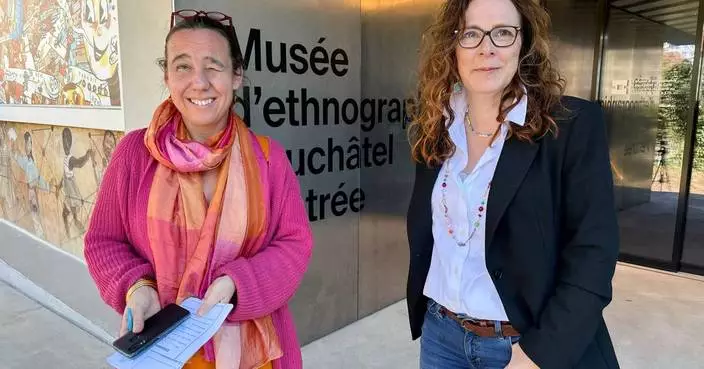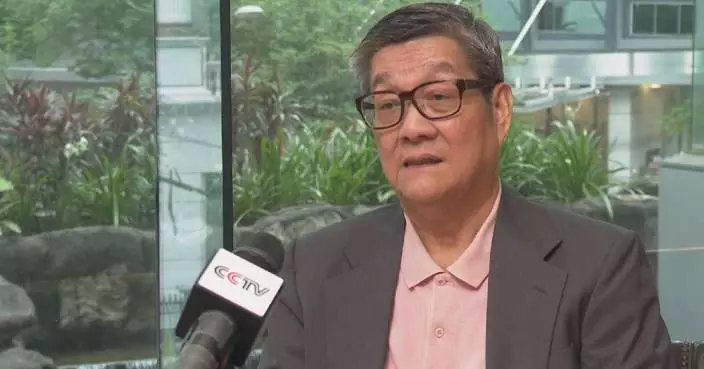Most people run in the opposite direction at the sight of bees, but a few patients in China are volunteering to be stung.
It is a cold morning and She Ruitao is wearing a hat with a veil and two pairs of gloves. He is going to catch live bees on an isolated hill in the southern Chinese city of Shenzhen.
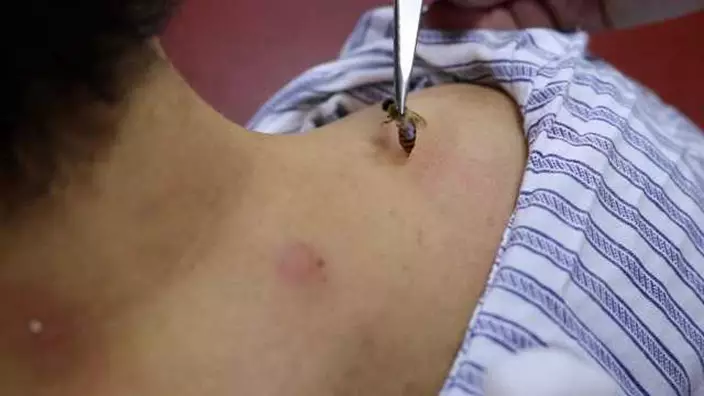
He has raised these bees himself. With a pair of forceps he takes them from their hive and puts them into a glass bottle. Half an hour later, he and 100-plus bees are in his consulting room at Shenzhen Traditional Chinese Medicine (TCM) Hospital.
Catching bees is his first job every Monday, Wednesday and Friday. Since last March, he has been offering bee sting therapy to outpatients at the hospital three times a week.
Part natural medicine, part acupuncture, the therapy requires doctors to inject bee venom into points on the patient's body through a live sting.
"Not all patients can be treated with the therapy," he explained.
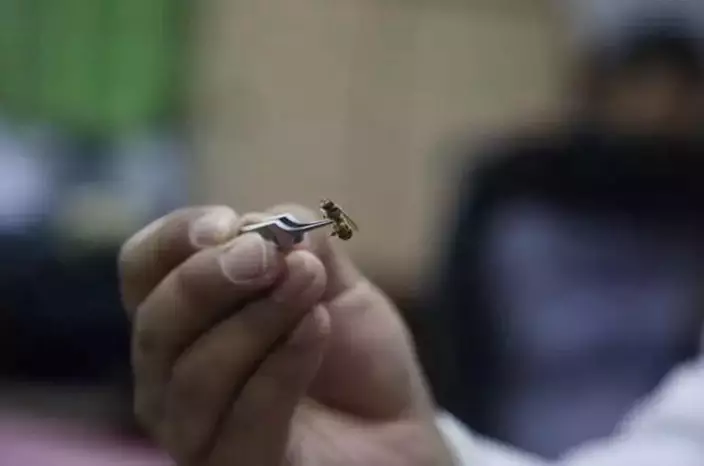
It is considered a valid treatment for various ailments, in particular, arthritis and rheumatism. Patients need to have X-rays and blood tests before he offers treatment.
Zhan has suffered from arthritis for years. She holds a bee in forceps and uses it to "sting" Zhan on points on his leg. "My swelling has gone down and my pain has lessened," Zhan said.
She does not rely on this type of treatment alone. "Bee sting therapy must be combined with other TCM and Western therapies," he said. Combining TCM and Western medicine has been the norm in China since the 1950s.
"After the bee stings the patient, the venom stimulates acupuncture points," said She, who claims that extracting venom is not as effective as using live bees because many constituents of the venom are volatile.
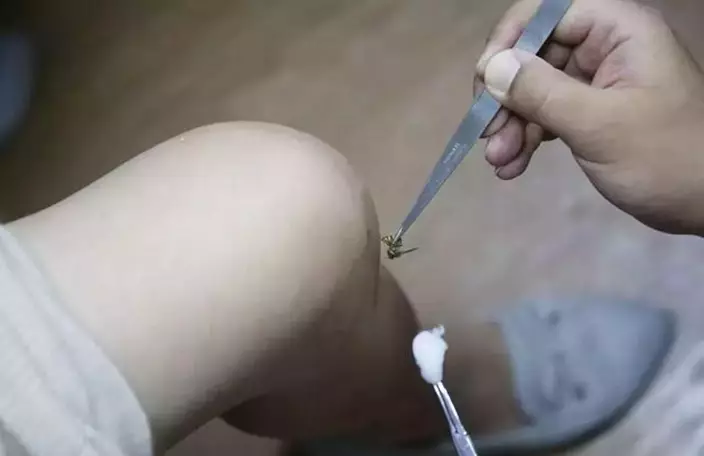
She treats more than 30 patients a day. A direct sting from a bee may cause minor allergic reactions such as redness, swelling and itching on skin or a serious reaction like anaphylactic shock, so patients stay in the hospital for 30 minutes of observation after the treatment.
Bee sting therapy has a history of more than 2,000 years in China. Proponents claim that there is some evidence of the anti-inflammatory and pain-easing properties of bee venom.
Currently, the therapy is found in hospitals and clinics all over China. In April 2016, the China Medical Association of Minorities established a sub-branch on bee sting therapy.
However, many health professionals claim that there is no orthodox medical evidence that bee venom is an effective medicine.
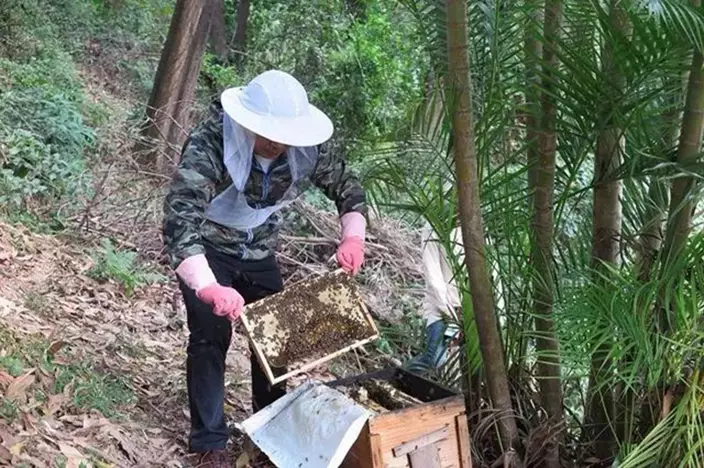
A Guangzhou-based allergy doctor, who only gives his name as Wang, asks patients to be more rational. "Even though the bee venom has medical properties, it's not a magical cure-all," Wang said.
The bee dies when it stings. At 7 p.m., She buries the dead bees under a tree in the hospital.
"Sometimes I feel I'm very cruel. I keep reminding myself that what I do is to relieve the pain of patients," he said.
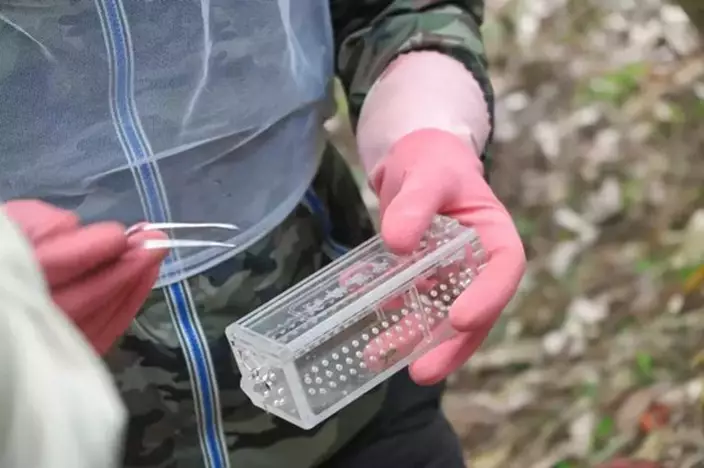
WINDHOEK, Namibia (AP) — Susan de Meyer's horses have different effects on different children. Hyperactive kids learn to be a little quieter around them while nonverbal children are moved to communicate and to bond with them.
De Meyer runs a program in the southern African country of Namibia that harnesses the power but also the gentleness of horses to help children with learning disabilities and conditions like ADHD and autism.
Each weekday morning, de Meyer's dusty paddock just outside the capital, Windhoek, is enlivened by a group of eight to 10 children from one of the special schools she helps. The children ride the horses, groom them, stroke them and often, de Meyer says, talk to them.
De Meyer grew up on a farm surrounded by horses and they've always been part of her life. She said they have a quality that is invaluable: They don't judge the children, no matter how different they are.
“The horse is the hero in this whole situation because these kids don’t want to be around a lot of people," de Meyer said.
De Meyer's program, "Enabling Through the Horse," is supported by the Namibian Equestrian Federation and won an award last year from the International Equestrian Federation because it “underlines the wonderful characteristics of the horse in exuding sensitivity and intuition.”
Horse therapy has been promoted by autism groups and those that work with children with learning disabilities as having a positive impact. And animal therapy in general has been found to be useful in many instances, like dogs that help military veterans with post-traumatic stress disorder and therapy cats that are taken to hospitals and nursing homes.
Some survivors of the devastating 2023 Hawaii wildfires found relief in horse therapy while grieving loved ones they had lost.
De Meyer jokes she has “two-and-a-half horses.” These include two Arabians — a white mare named Faranah and a brown gelding, Lansha — while the “half” is a miniature horse called Bonzi, who is about head-high for a 5-year-old.
The Arabians are often the most useful for the children's therapy because of their size, de Meyer said.
“It gives them self-esteem. When they stroke the horse, the therapy starts because this is a very big animal compared to their height, and they are not scared to stroke the horse ... and then to ride it and tell the horse what they want,” she said.
De Meyer works with children with a range of conditions or disabilities, including autism, attention-deficit/hyperactivity disorder, Down syndrome, those who are nonverbal or touch sensitive, and some who were born with fetal alcohol syndrome and have developmental problems.
She has received interest from other countries in Africa and Asia to start similar programs there.
“The changes that I’ve seen with the learners are significant,” said Chriszell Louw, a teacher at Dagbreek School, which says it is one of just two government schools in Namibia for children with intellectual disabilities. “We have a learner that likes to talk a lot. When we come here, she knows she has to keep quiet. She sits in her place.”
"Some of them you see they are more open, they are happy. Some of them were very scared when they started with the horse riding but now they are very excited. When they hear we’re going to the horses they are very excited and just want to go by themselves,” Louw said.
De Meyer said her program helps with fine-motor skills, gross-motor skills, muscle strengthening, coordination, balance and posture, all important for kids who struggle to sit at a desk at school and learn.
One simple exercise de Meyer has children do when they ride is to let go of the reins and stretch their arms out straight and to the sides, using only their torso and lower body to balance as a groom leads the horse around the paddock.
Some of the kids break out in smiles when they let go and look like they're soaring.
"We make the world different for these kids," de Meyer said.
For more on Africa and development: https://apnews.com/hub/africa-pulse
The Associated Press receives financial support for global health and development coverage in Africa from the Gates Foundation. The AP is solely responsible for all content. Find AP’s standards for working with philanthropies, a list of supporters and funded coverage areas at AP.org.

Merci who participates in the "Enabling Through the Horse," therapy program outside Windhoek, Namibia, pets a horse on Feb. 18, 2025. (AP Photo/Dirk Heinrich)

Immanuel Hoxobeb assists children participating in the "Enabling Through the Horse," therapy program outside Windhoek, Namibia, on Feb. 18, 2025. (AP Photo/Dirk Heinrich)
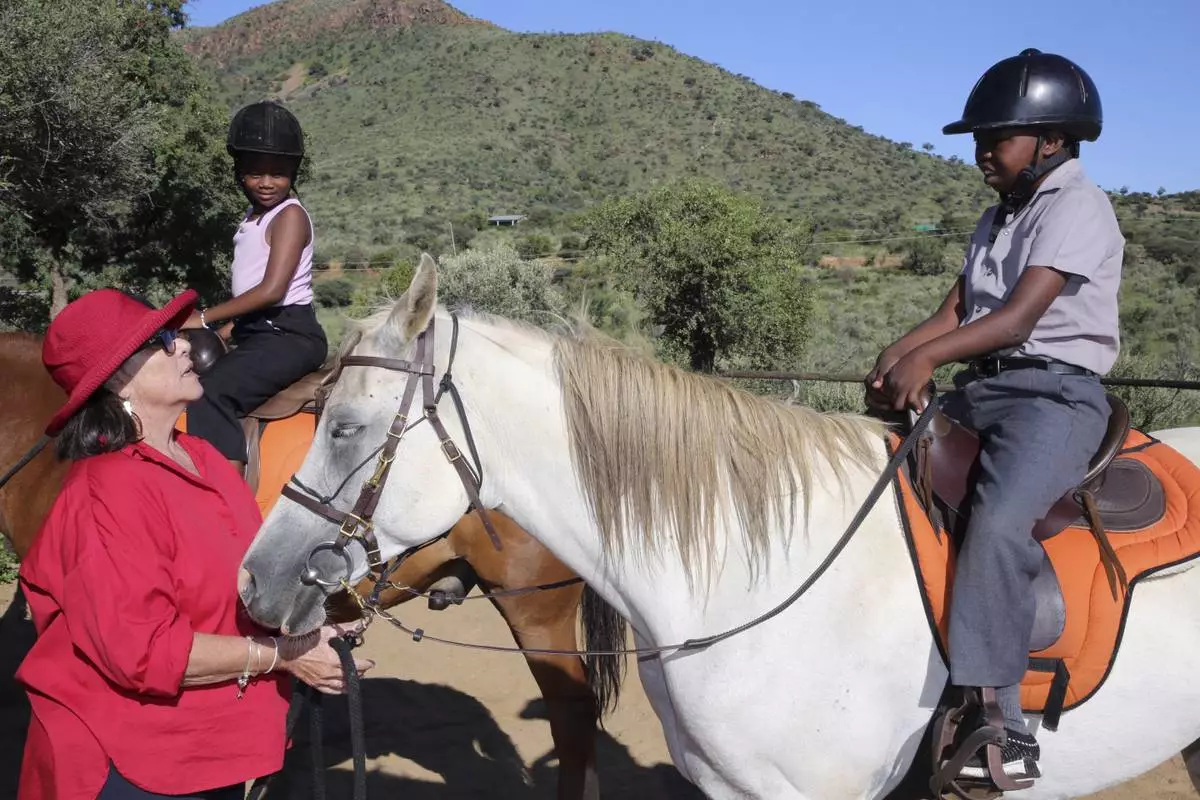
Susan de Meyer assists children participating in the "Enabling Through the Horse," therapy program outside Windhoek, Namibia, on Feb. 18, 2025. (AP Photo/Dirk Heinrich)
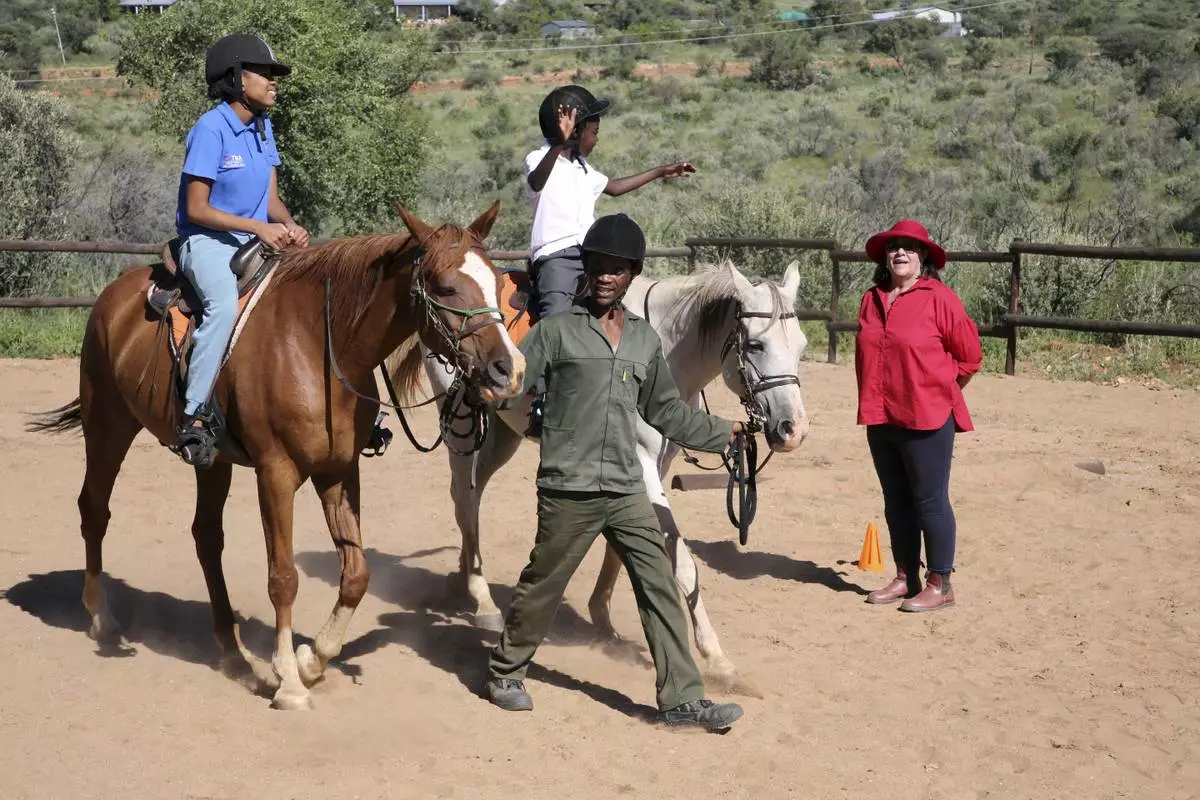
Susan de Meyer, right, and Immanuel Hoxobeb assist children participating in the "Enabling Through the Horse," therapy program outside Windhoek, Namibia, on Feb. 18, 2025. (AP Photo/Dirk Heinrich)

Immanuel Hoxobeb assists Alicia who participates in the "Enabling Through the Horse," therapy program outside Windhoek, Namibia, on Feb. 18, 2025. (AP Photo/Dirk Heinrich)













